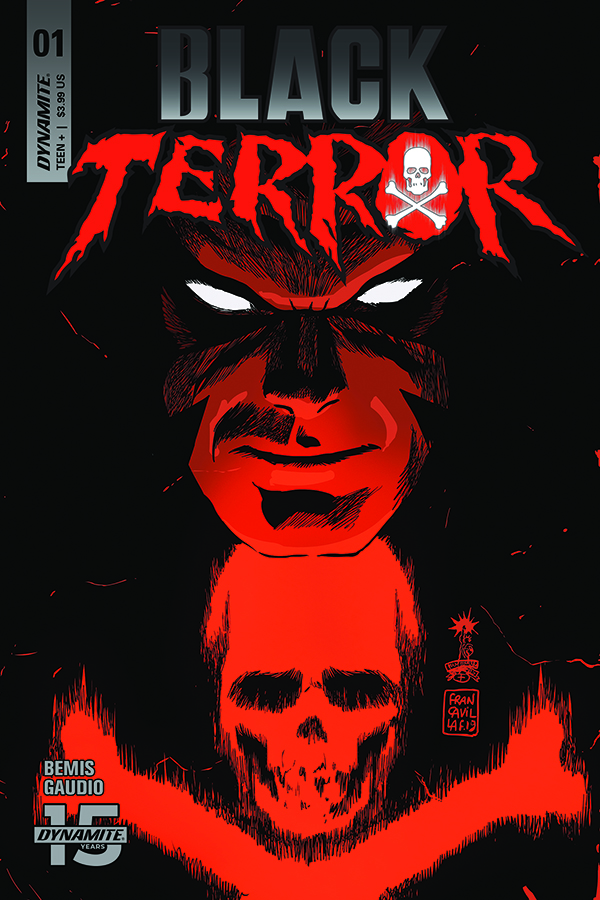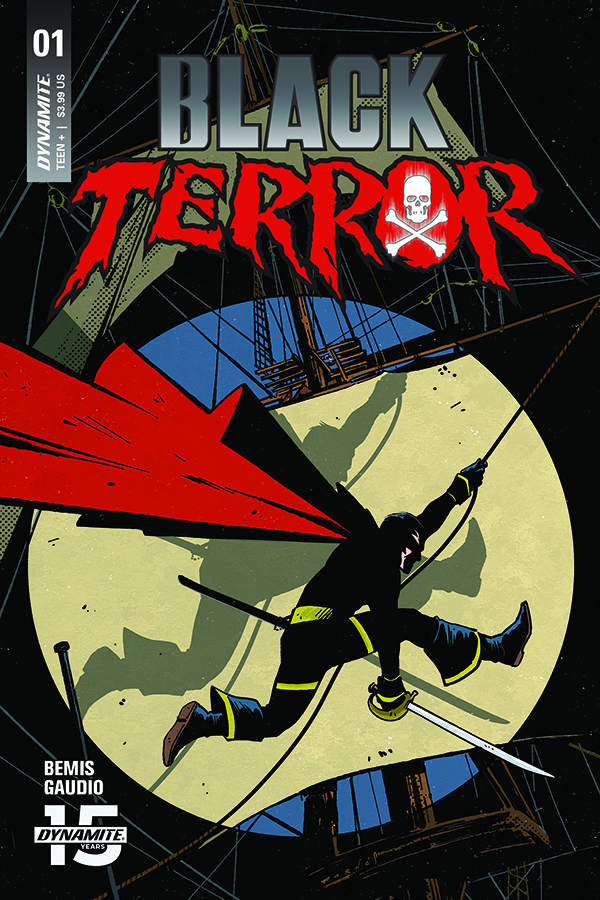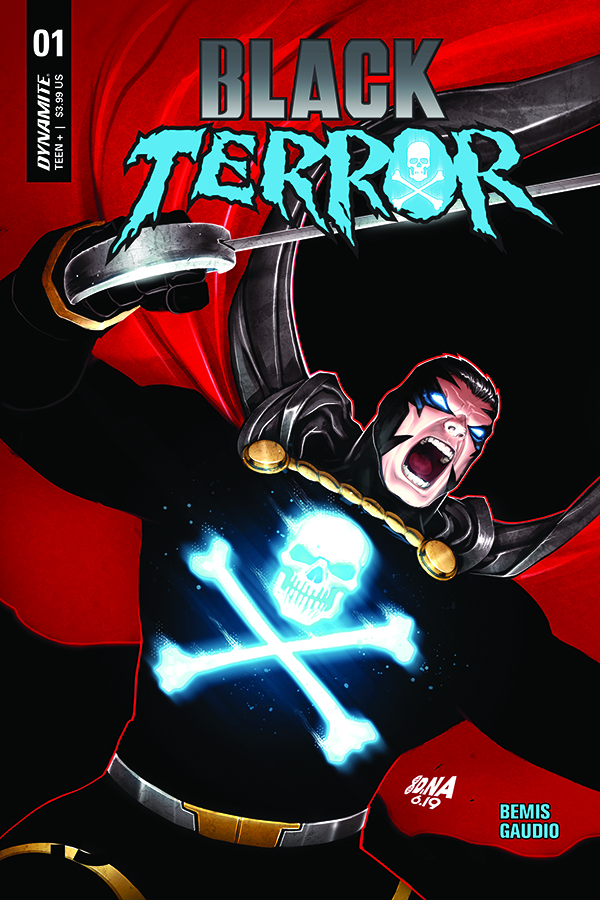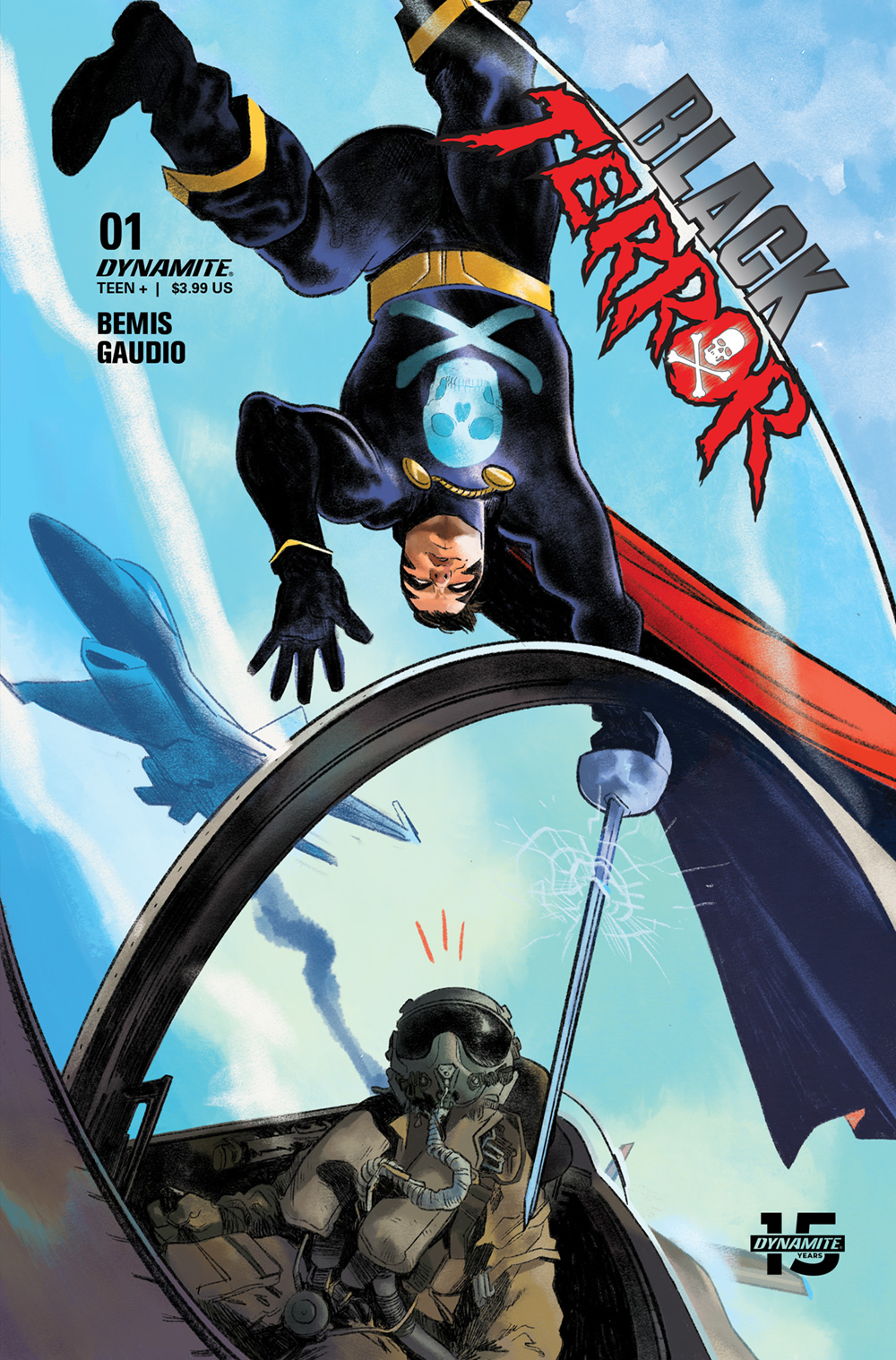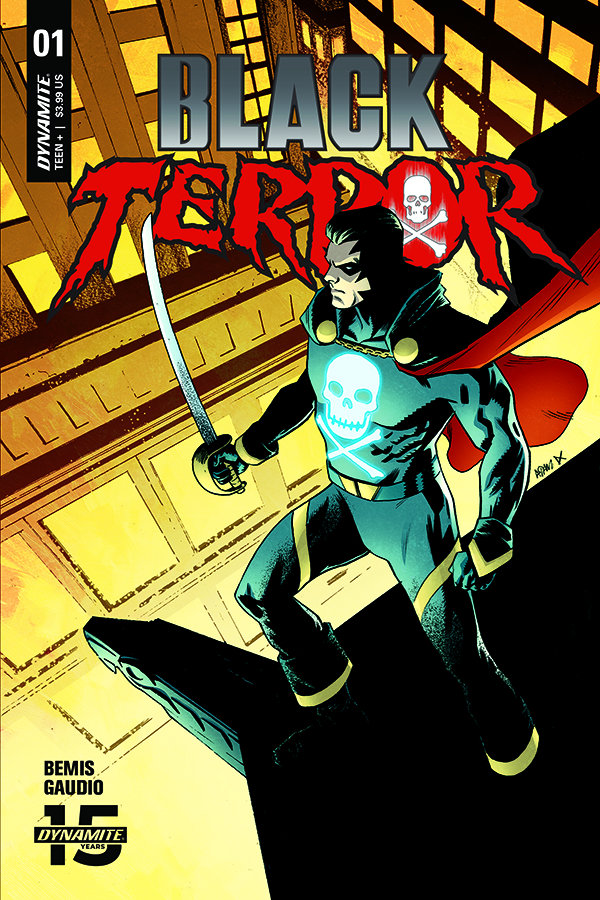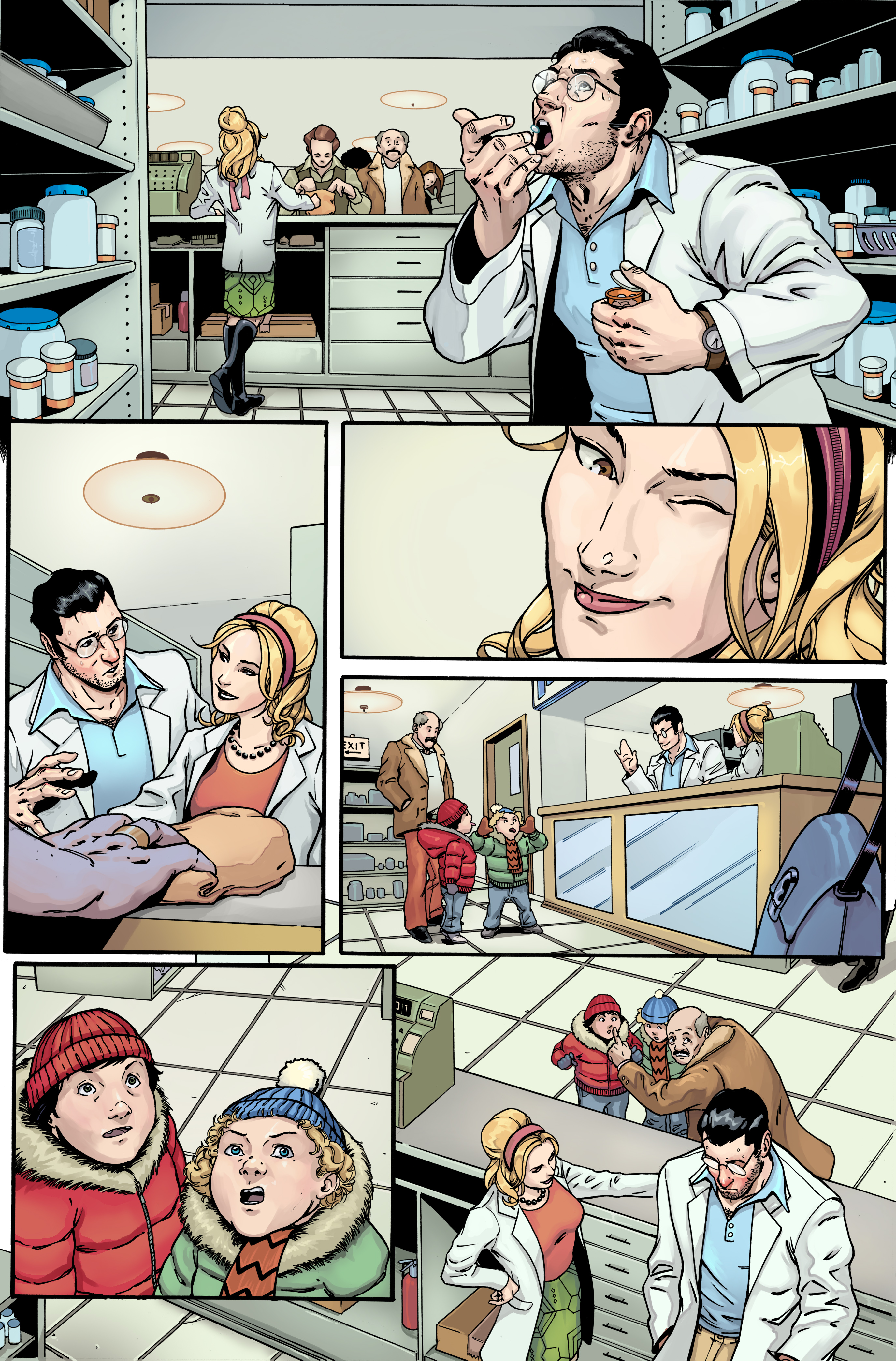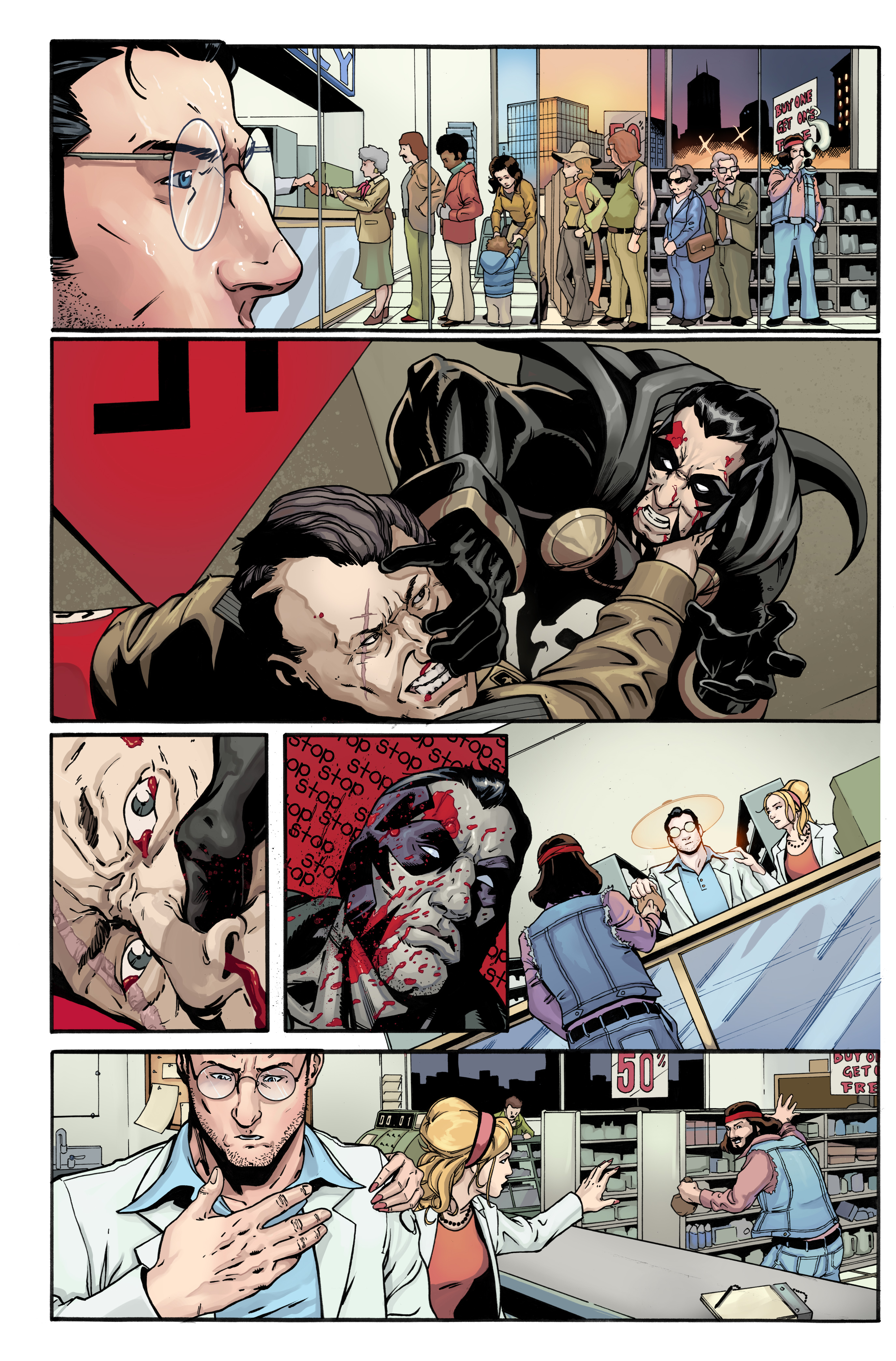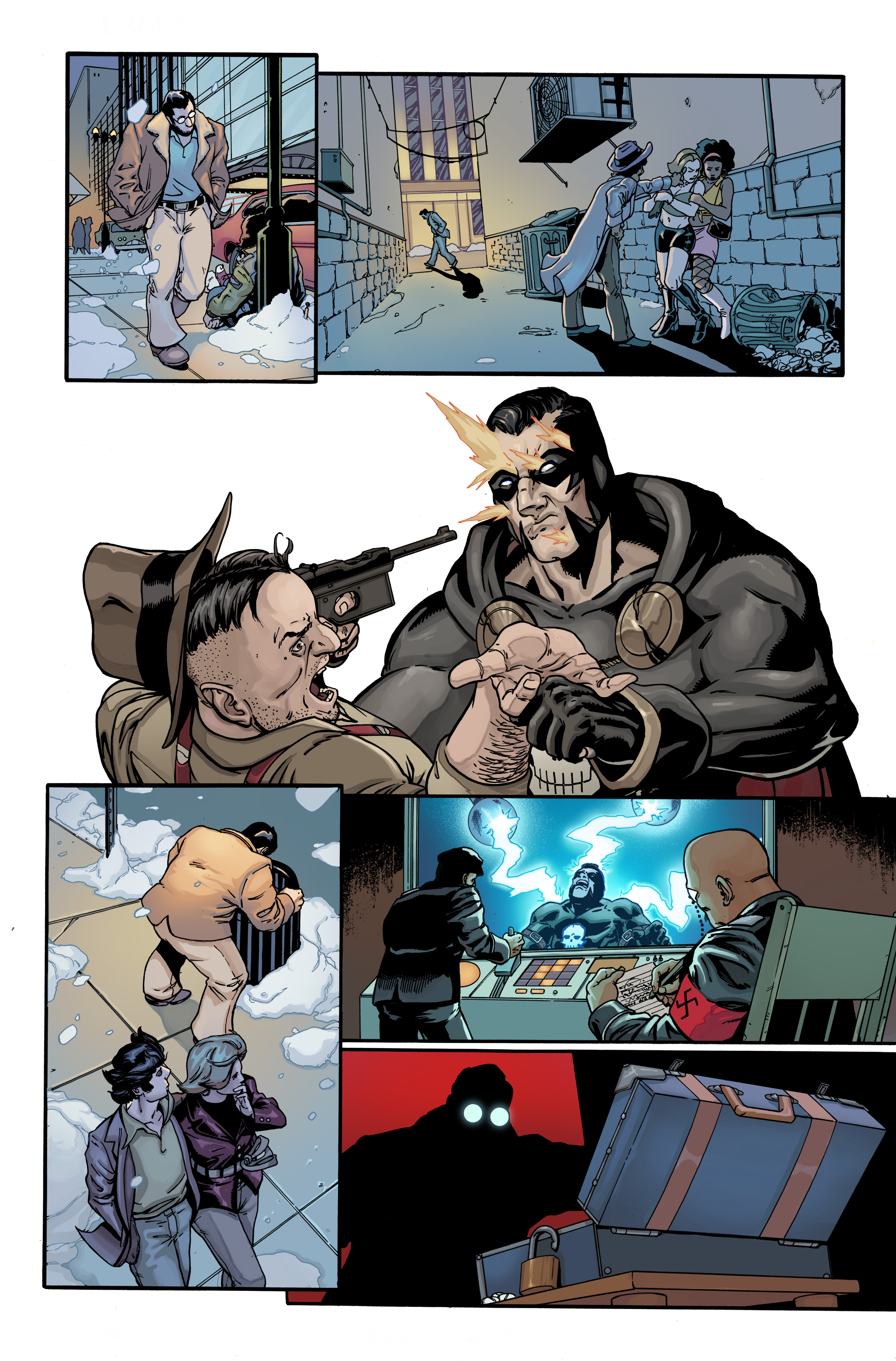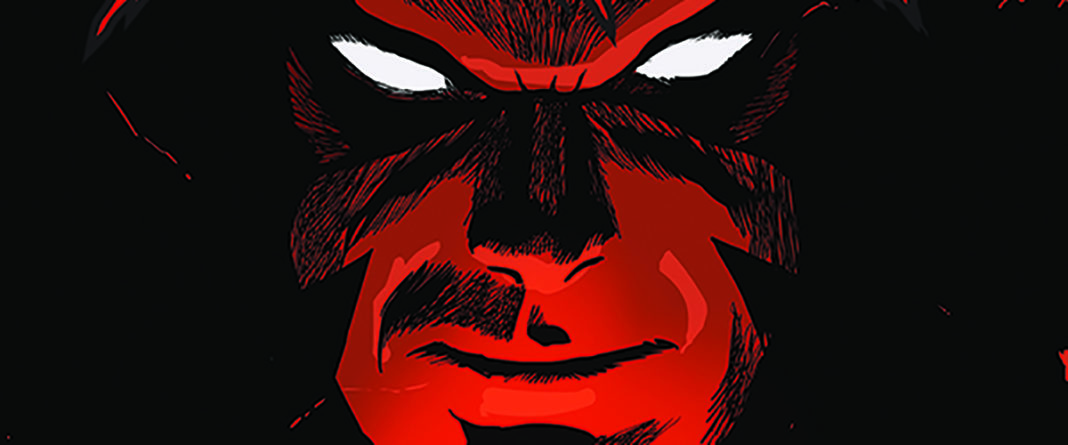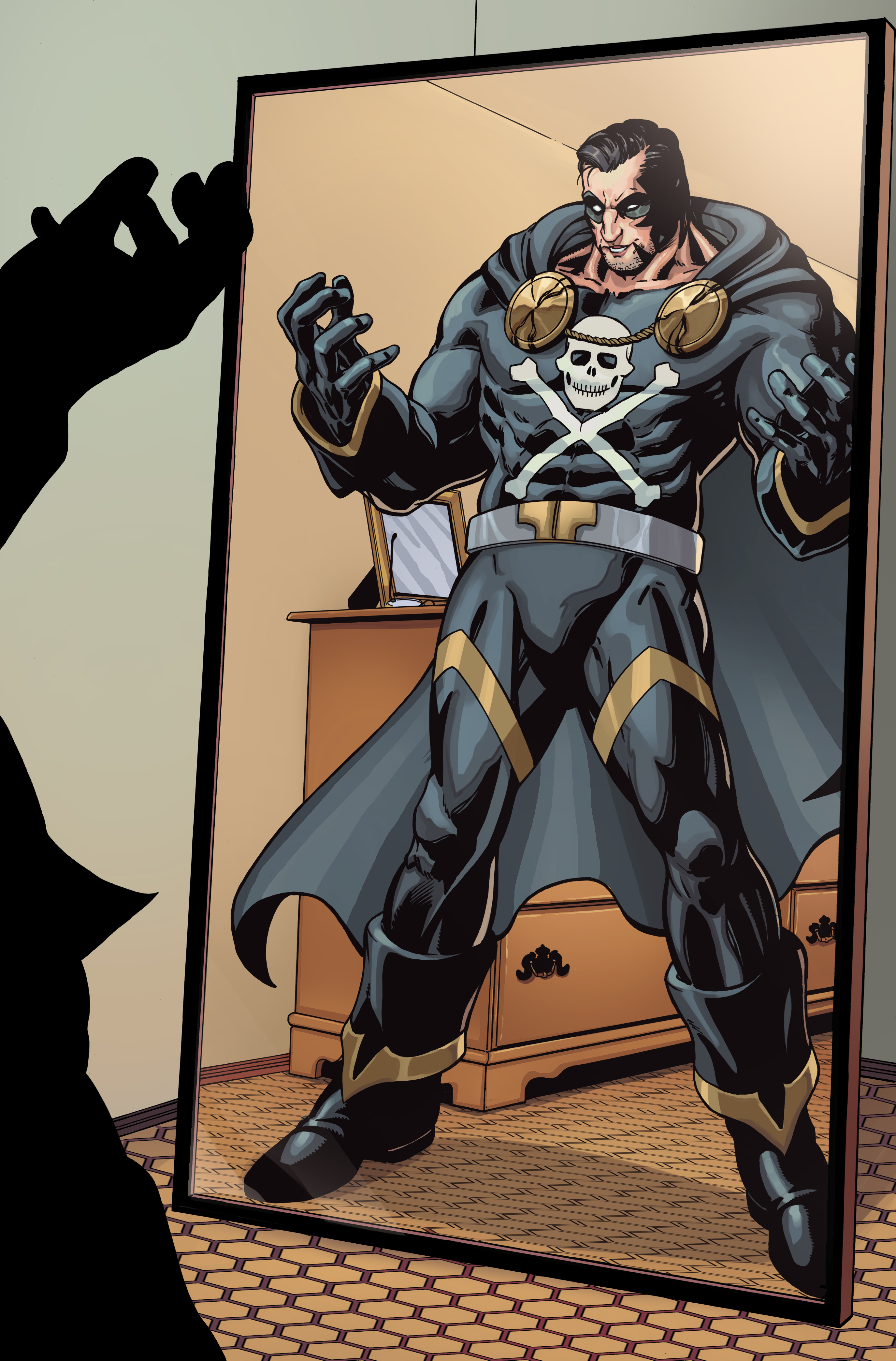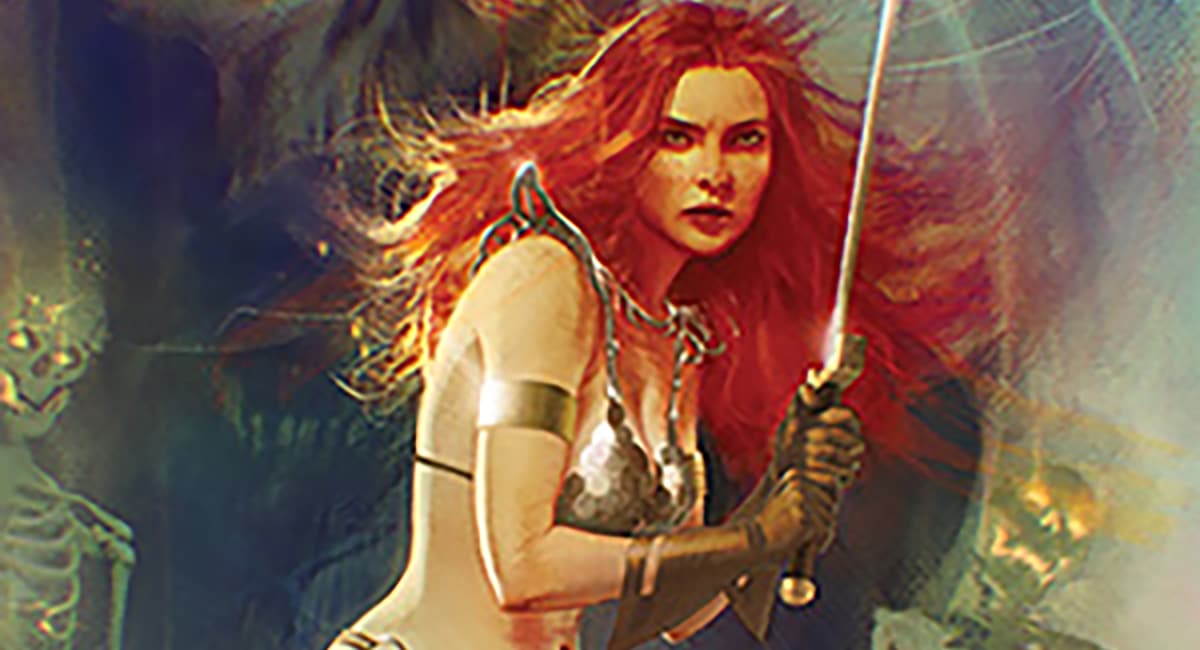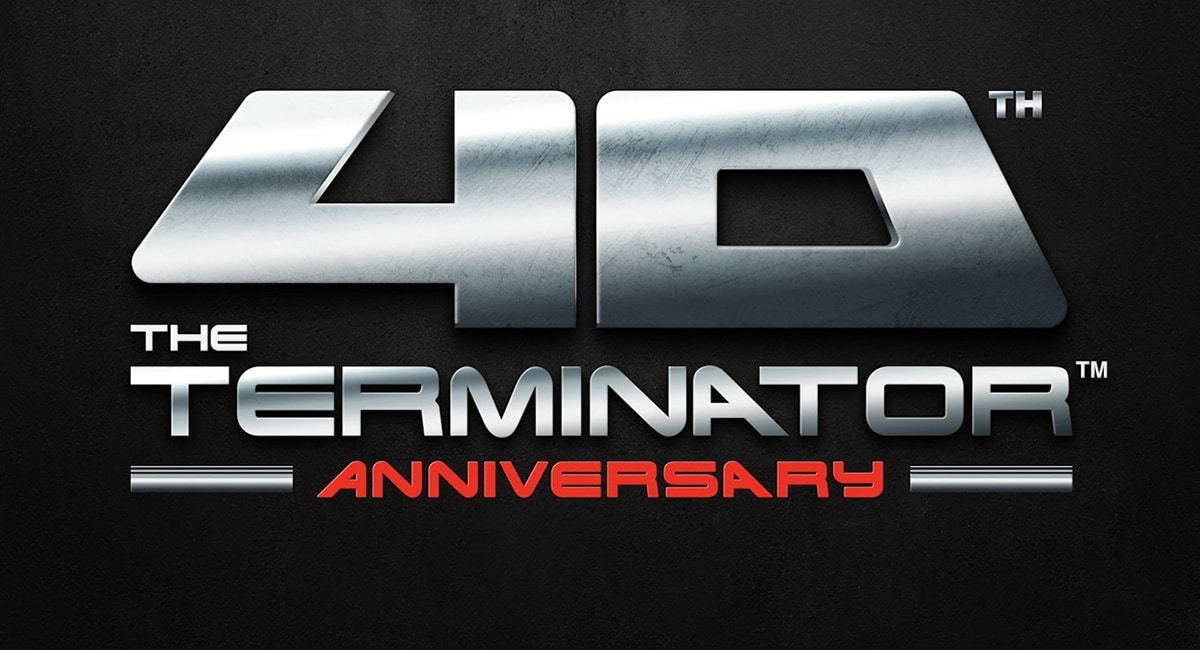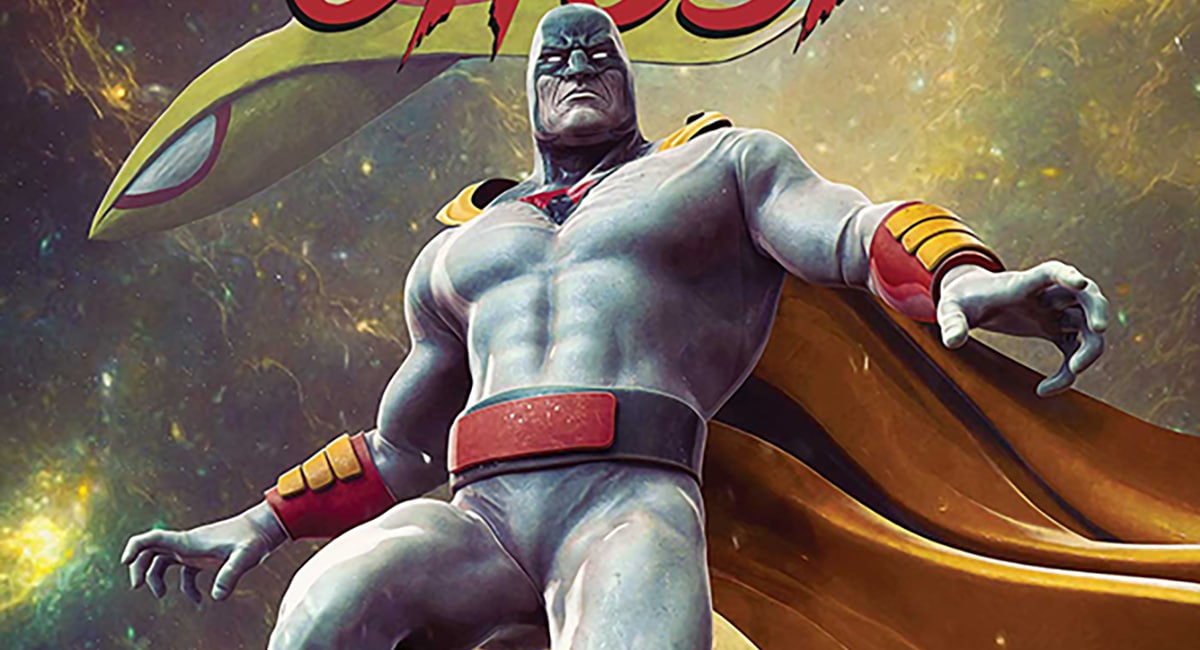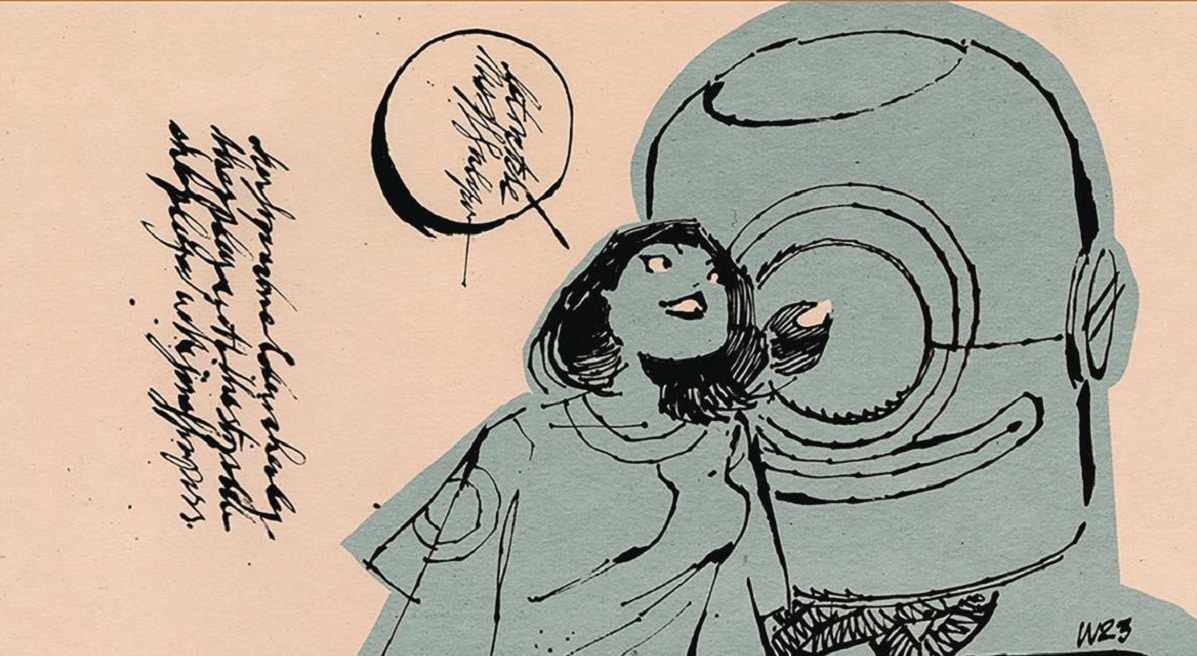Best known for his year-long run on Moon Knight as well as Polarity and Centipede, writer Max Bemis is now set to tackle the public domain Golden Age character Black Terror for Dynamite Comics this fall. With art by Matt Gaudio (John Wick, Bettie Page) and Ruairi Coleman (KISS/Army of Darkness), colors by Brittany Pezzillo, and letters by Taylor Esposito of Ghost Glyph Studios, the limited series will also feature covers by Francesco Francavilla, David Nakayama, Erica Henderson, Adam Gorham and Jorge Fornes.
Set in the 1970s, pharmacist Bob Benton aka Black Terror is suffering from post war PTSD and the remnants of his past as a superhero, all while the social landscape is quickly changing around him. Even though the series will deal with heavy topics (and will even draw inspiration from Bemis’ own life), the book offers readers a bit of humor amidst the darkness. Bemis chatted with The Beat about his take on the character and why he chose this direction.
Deanna Destito: What about taking on Black Terror was so appealing?
Max Bemis: Black Terror is, historically, pretty much what his name implies, a semi-tortured brutal vigilante. This is obviously a really open canvas to add to his mythology and help shape who he might be personally, to tell more odd stories about him and take chances as a storyteller.
Destito: He’s a Golden Age character. What about him made it easy to transition him to a different time period, and why does he translate so well into any decade, even today?
Bemis: What we’re trying to do is examine how Golden Age ideals came up against such a morally ambiguous, crazy time (the 1970s). I think comics, society, and the human condition changed and grew a lot during this period, so seeing how it would have affected not just the man but the idea of a vigilante is really interesting for me.
Destito: Did you feel a personal connection to Bob Benton?
Bemis: I definitely write from experience, sometimes to a fault. So yes, there’s a lot of things I’ve encountered mixed up in what Bob goes through in our book. Mainly, when I was writing the first issue I was dealing with serious PTSD, as Bob is both a veteran and a survivor of the superhero experience.
Destito: How has it been working with the rest of your creative team?
Bemis: Amazing. I’ve been blessed to have such talented artists bring my ideas to life and I tend to give as much creative freedom as possible when I script, as they often know better than me. This book has been no exception, and I’m excited for fans to see the zany world we’ve created.
Destito: You’ve described the series as having a humorous side despite some of the heavier topics. Why was that important?
Bemis: I think if you want a series dissembling superhero ideals in light of a darker decade, go read Watchmen. That shit has been done (amazingly) quite a few times. I also think it fits the vibe of the 1970s to have some of the shock be from one’s ability to laugh at the suffering involved.
Destito: Any other Golden or Silver age characters you’d like to revive?
Bemis: The list can go on forever. But I love The Shadow. COUGH Dynamite COUGH
Black Terror will be available October 2. Let your favorite local comic shop know this month to order your copy ahead of the release. Go to Dynamite’s website for more on the series, or if you prefer digital, look for your copy on ComiXology, Dynamite Digital, iBooks, Kindle, and more.
